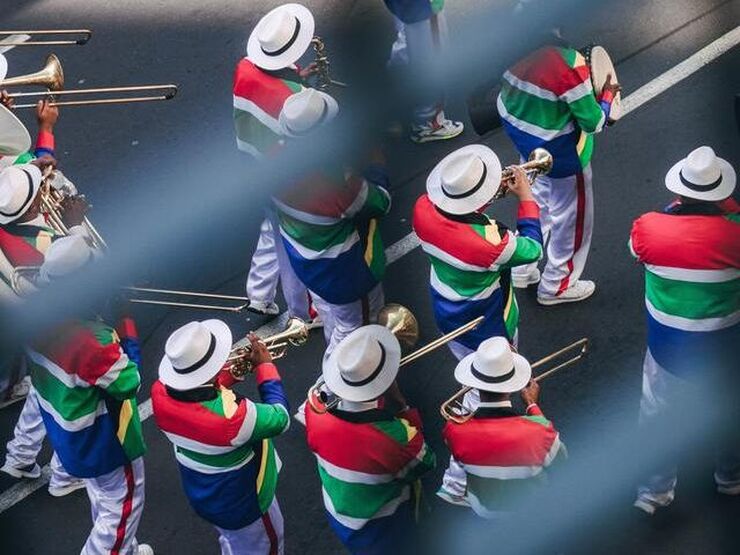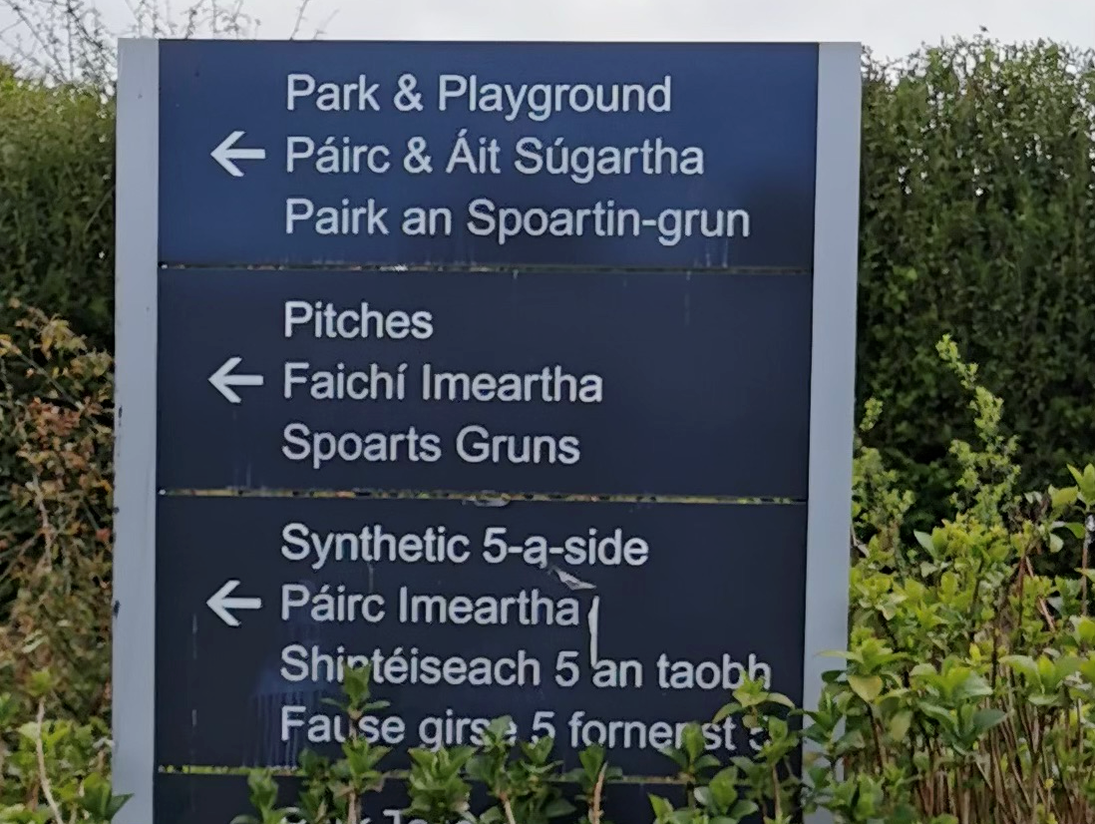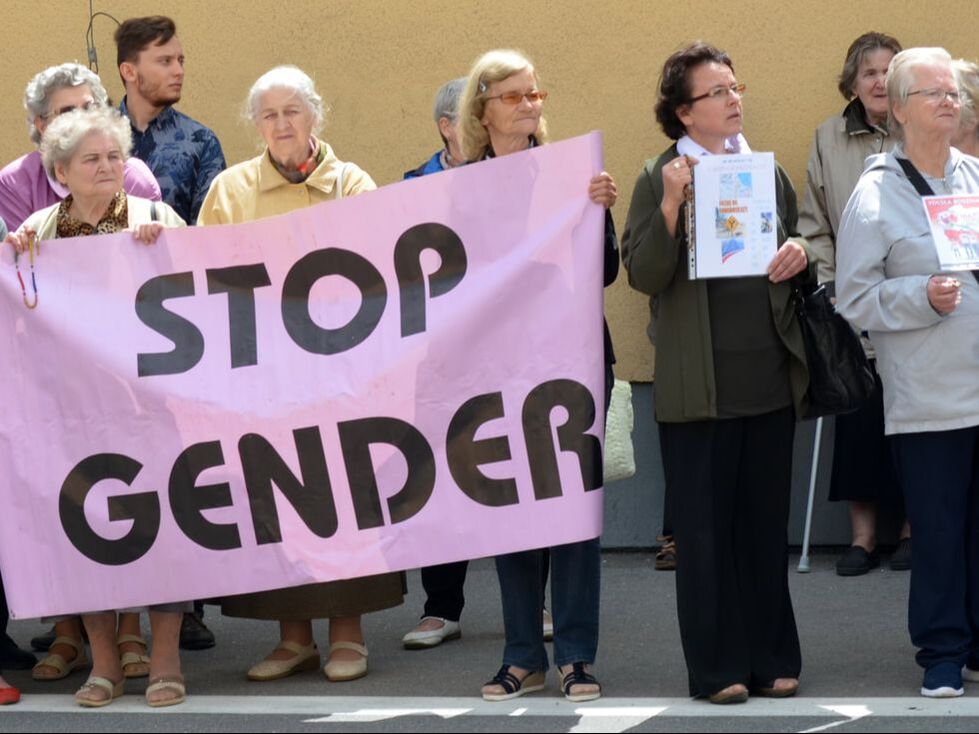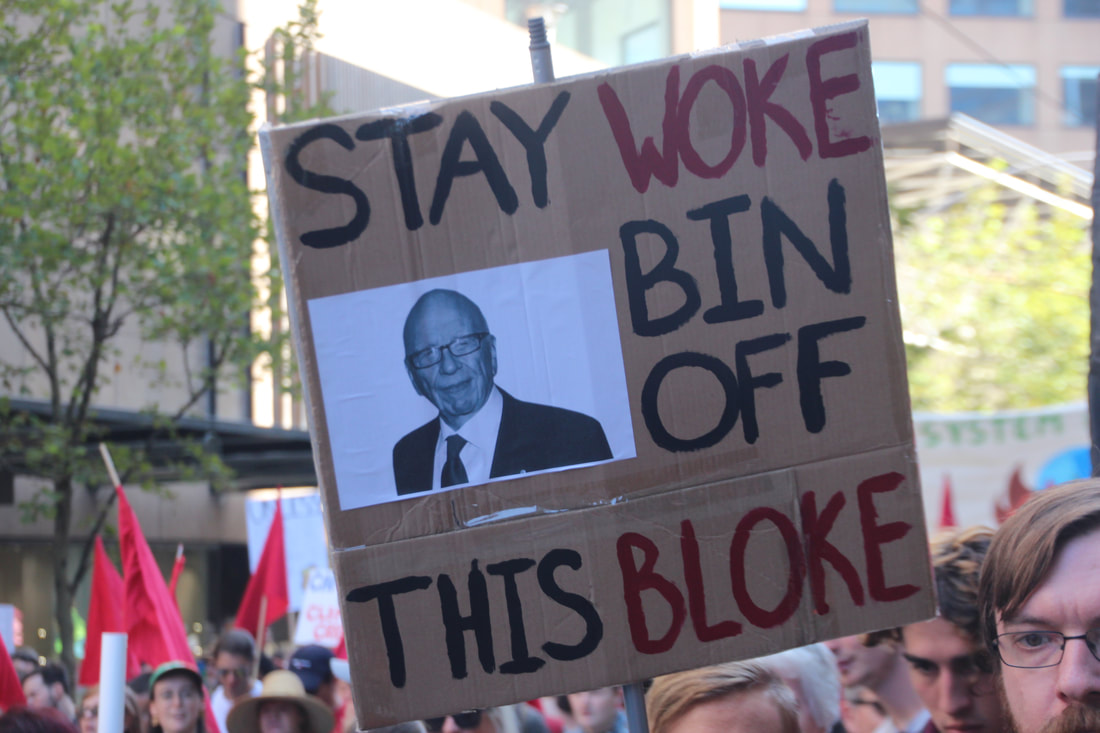|
|
|
Today, national symbols serve as modern totems to distinguish and portray nation-states. Most of us watched the Tokyo Olympic Games and saw the pride and intense emotions that athletes and fans displayed in paying homage to their national flags and anthems at medal ceremonies. National symbols are usually chosen to reflect a single united nation, but they are often contested in divided societies, as they play a powerful role in preserving the collective memories and reflecting the cultural narratives of groups.
It is therefore difficult to establish symbols which reverberate with the cultural legacies of diverse groups in divided societies, and in particular, post-conflict societies. Although some groups might identify less with official national symbols in diverse societies, nationalism scholars believe that attitudes can change over time. Due to the pervasive display of official symbols, people can become accustomed to them, and memories of former symbols associated with particular cultures can fade.
0 Comments
On 10th May 2022, plans to legislate for the Irish language in Northern Ireland were announced in the Queen's Speech at the State Opening of the Westminster Parliament. The speech pledged a new Irish Language Commission, designed to “protect and enhance the use of the Irish Language”. The bill will also establish a new Office of Identity and Cultural Expression. This will offer guidance to public authorities on a range of cultural identity principles that were set out in the 2020 New Decade, New Approach document. The bill will also place a duty on the Department of Education in Northern Ireland facilitate and promote Ulster-Scots in education.
On 25th May 2022, the Secretary of State for Northern Ireland introduced legislation in Westminster that will deliver this package of measure. Irish speakers have reacted with cautious optimism, but have also warned that the Bill needs to be enacted and implemented in full before they will end their campaign in support of a language act.
Concocted by the conservative quarters of the Vatican, the disparaging term 'gender ideology' has been taken up not only by the radical right, but also by some centre-left, liberal commentators, seemingly unconcerned with the concept's troublesome history. One notable example is the Economist's last year article denouncing the so-called 'trans ideology', titled A backlash against gender ideology is starting in universities. In my Identities article, 'Framing ‘gender ideology’: religious populism in the Croatian Catholic Church', I consider the provenance of how the 'gender ideology' frame was utilized by the Catholic church in Croatia – one of the earliest cases of widespread anti-gender mobilization in Europe.
Having gone through a double transition to a capitalist liberal democracy, the revived religious nationalism in Croatia competed with liberal values from the 'free Western world'. The generous Vatican agreements signed in the late '90s by the authoritarian, right-wing government provided fertile ground for a blossoming of Catholic evangelization and proliferation of lay activism. In contrast to current research on the populist radical right which demonstrates the manipulation of religion committed by political actors, I identify factions of the Church itself as populist entrepreneurs. Polarizing populist discourse is traced back to Pope John Paul II's warnings against 'the war of the powerful against the weak', and connected to newer doctrinal, papal writings on issues of gender, ecology and politics.
Discussions of contemporary white supremacy are seemingly everywhere: the election of Donald Trump and the January 6th insurrection, the murder of George Floyd, Brexit, the rise of the Alternative Right and white supremacist violence, and the coordinated efforts to deny racism and not educate children about the history and contemporary reality of race. These loud and important flashpoints, however, can unintentionally obscure the wider function and embodiment of white supremacy. That it is global and interconnected, is about systems and structures of power and not individuals, often hides in plain sight, and does not need ‘white’ bodies to sustain its power and replication.
For over a decade I have travelled to collect field data on race, globalization, development and labour in different Global South geographies. Through these engagements similar patterns became clear: countries in the Global South were beholden to policies dictated by the Global North. National groups racialized as white, or that exhibited a proximity to whiteness, were typically in positions of political and economic power. Those racialized as Black, or represented a distance from whiteness, had the worst material conditions. These seemingly very apparent global racial inequalities were often understood, though, as not about racism but about economic development, skills, capabilities, culture – essentially, anything but race.
While the ‘Common-Sense Group’ of MPs and Lords still retain the term, during the last few years the far-right conspiracy theory Cultural Marxism has fallen out of favour within mainstream British right-wing discourses. It has been largely superseded by the pejorative use of the term ‘woke’, which originated from the fight for racial justice in the USA. This blog post examines the transition from Cultural Marxism to woke and asks what does the derogatory use of so called ‘wokeism’ offer to its patrons that Cultural Marxism doesn’t?
Cultural Marxism is a long-standing far-right conspiracy theory. According to the American far-right, The Frankfurt School of Jewish Marxist intellectuals, who escaped Nazi Germany, initiated a plan to destabilise America from within by using their supposed control of the organs of culture, including education, the media, and churches, to attack Western civilisation and undermine pride in its past. The far-right sees the progressive civic and social movements that began in the 1960s – feminism, LGTBQ+ rights, black power, anti-colonial liberation, environmentalism, and pacifism as part of Cultural Marxism’s orchestrated effort to “destroy the American way of life as established by whites”.
Populist parties and leaders have become important actors across the globe. The 2022 presidential elections in France, and parliamentary elections in Sweden, as well as Turkey’s 2023 presidential elections not only revived academic research on populism and stirred scholarly debate about how to conceptualize it, but also compelled electors and political actors to reflect on the political developments taking place on the populist right front.
In our Identities article, ‘The veil as an object of right-wing populist politics: A comparative perspective of Turkey, Sweden, and France’, we selected three countries which have extremely different religious, secular, and cultural contexts. We then analyzed the political statements by the radical right-wing parties in each of the chosen countries: the Justice and Development Party (Adalet ve Kalkınma Partisi, AKP) in Turkey, the National Rally (Rassamblement National, NR) in France and the Sweden Democrats (Sverigedemokraterna, SDs) in Sweden. |
|
Explore Identities at tandfonline.com/GIDE |
|
The views and opinions expressed on The Identities Blog are solely those of the original blog post authors, and not of the journal, Taylor & Francis Group or the University of Glasgow.






